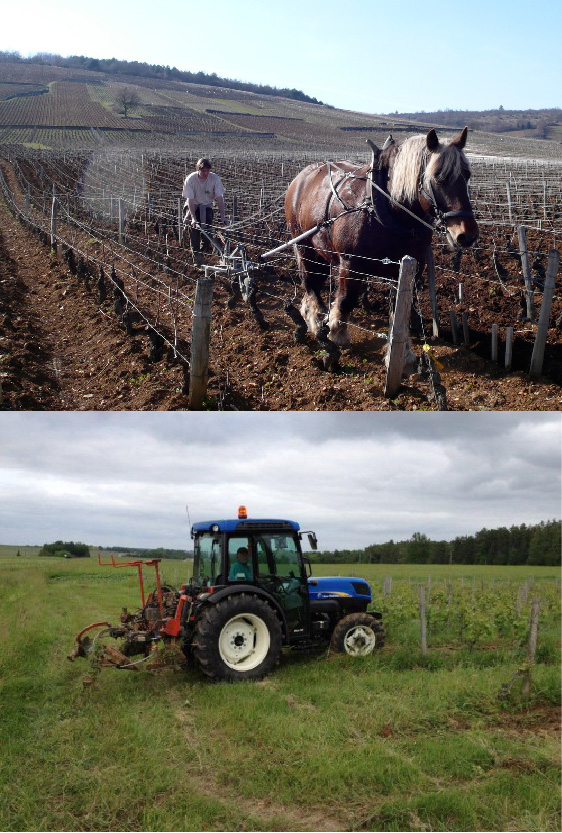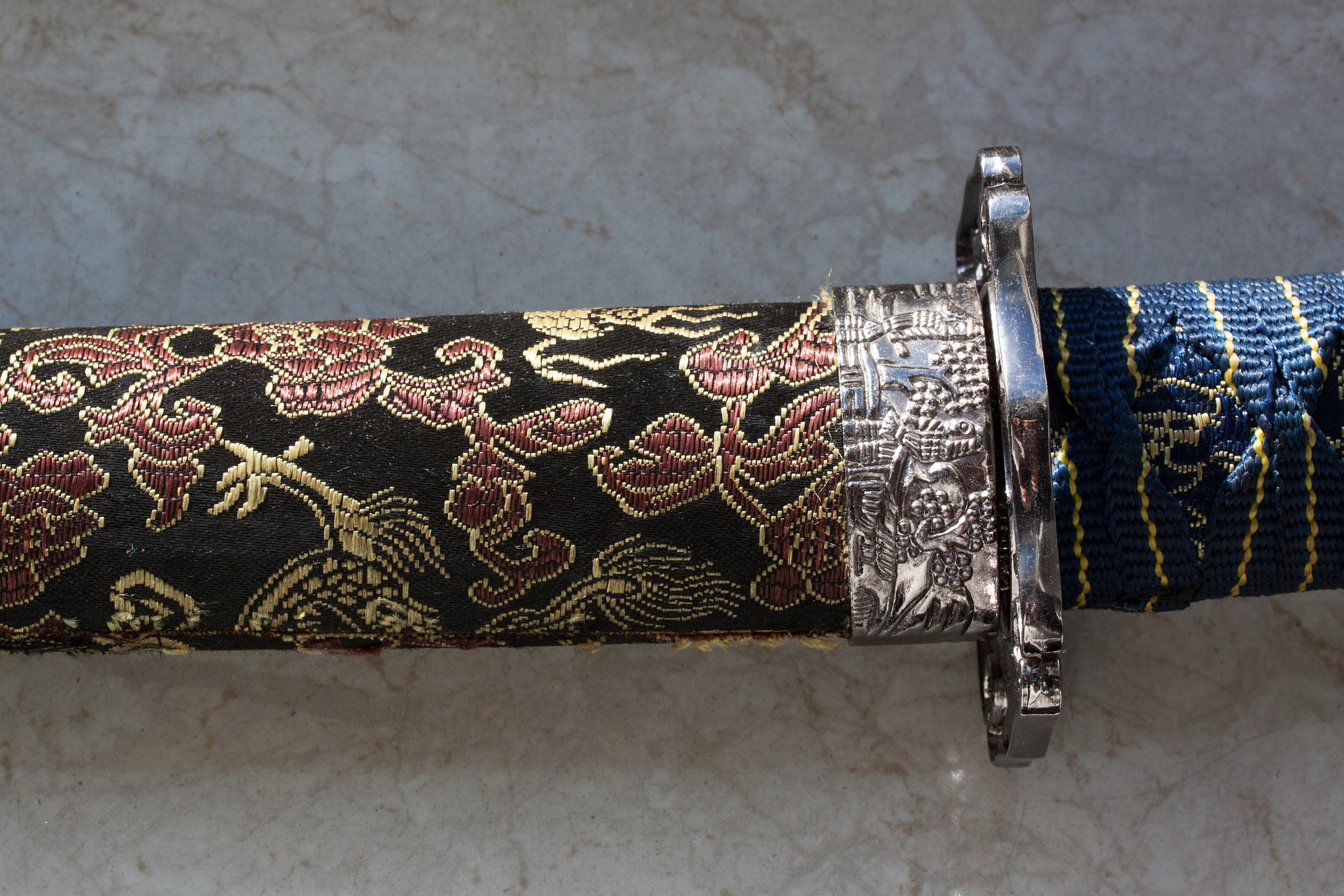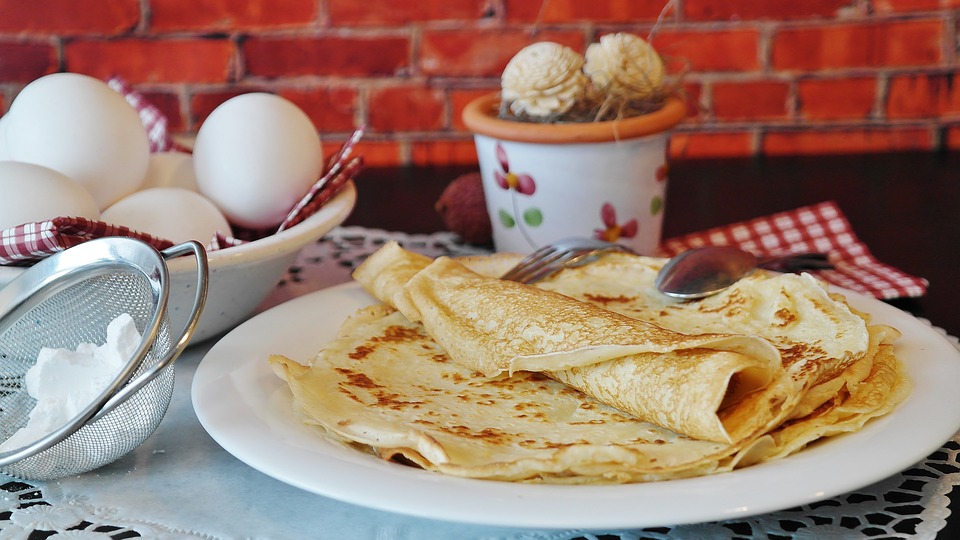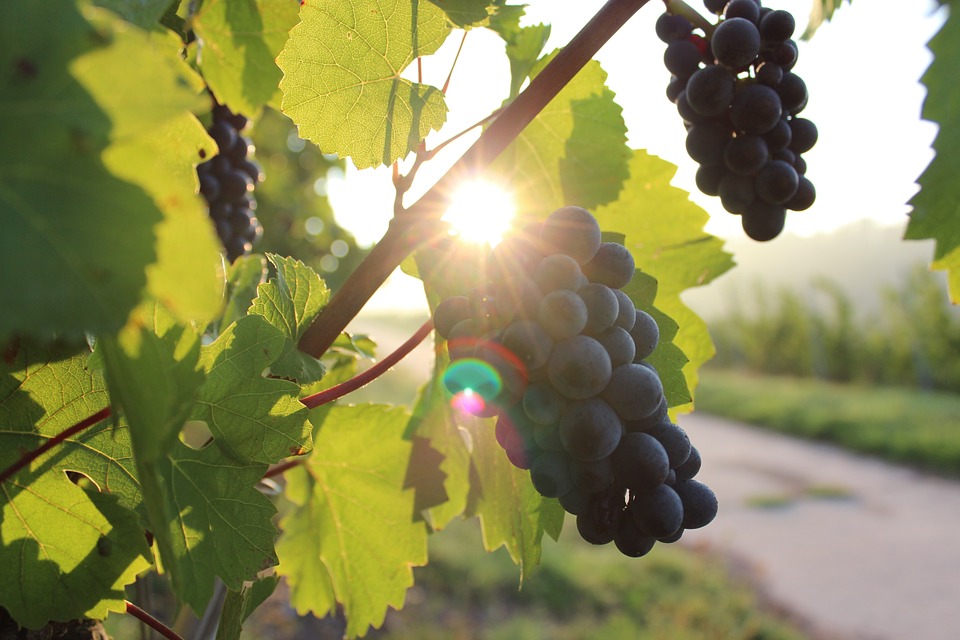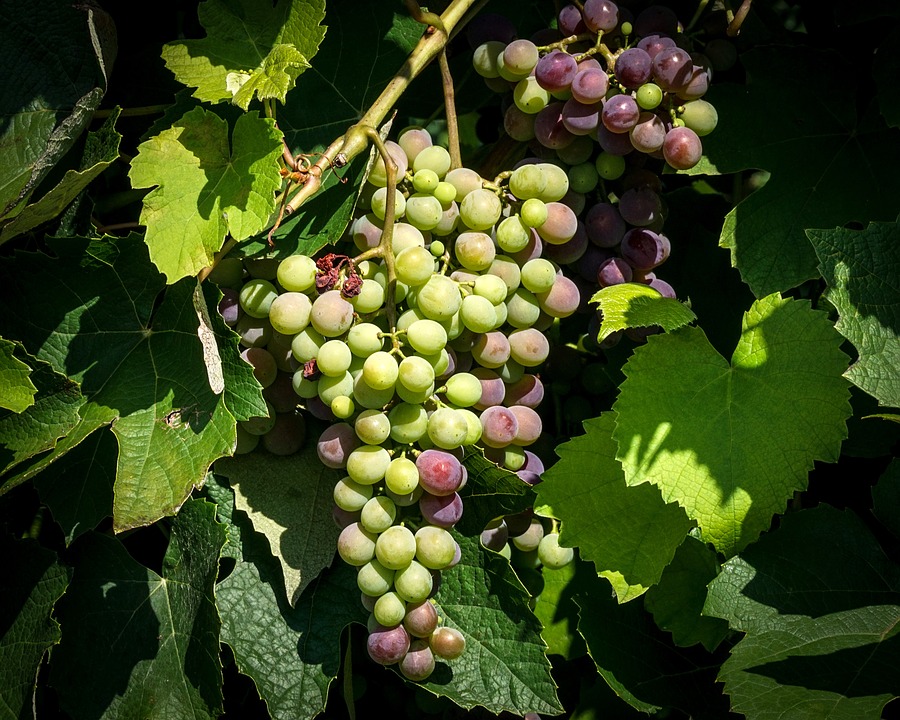Laboring the soil is essential to the vine’s well being. It helps in eliminating weeds and grasses around the vine’s base, aerate the ground, help water to penetrate but above all promote life in the soil. All these elements are necessary for the vine’s well being, and good soil management will certainly enhance the wine’s quality and the “terroir’s” identity.
The use of pesticides and weed-killers, will, on the contrary, destroy the microorganisms living in the soil making it poorer. The vine will not be able to “feed” itself correctly, affecting directly the grape and hence the wine itself.
The evolution of techniques and equipment has helped the wine maker to maintain his vineyards, and to labor his soil with more simplicity. However, is mechanized labor as efficient as it’s laid out to be?
A century back, tractors didn’t exist, and the plough horse was the main actor in laboring the vineyards.
Nowadays, the tractor has taken over for a majority of the vineyards, allowing the winemaker to gain time on the vineyard’s maintenance.
Certain domains such as Romanée Conti, the horse remains and is the unique means of working the land. The horse tramples the soil and increases the soil’s aeration, without necessarily flattening the ground and this at a great depth, whilst the tractor just with it’s weight and huge wheels, will compact and flatten the soil.
Certain scientists are affirmative, that soil labor will not affect the quality of the grape or the vine, but on the contrary, it would upset more the fragile equilibrium within it.
So, who is right or wrong?
I still think that soil labor is necessary, but in a traditional manner and not mechanically. Otherwise, how can one explain that wines produced by Romanée Conti, maintain themselves amongst the best wines in the world without their horses?
Let’s leave to industrial wines mechanized ploughing, in order to achieve quantity, and leave traditional ploughing for the quality of Grand Crus.
Therefore, dear scientists, shed your white lab coat, leave the laboratory in order to spend more time in the middle of vineyards, with the men and women who make the wine. Your research will probably be less hypothetic and moreover, verifiable.
